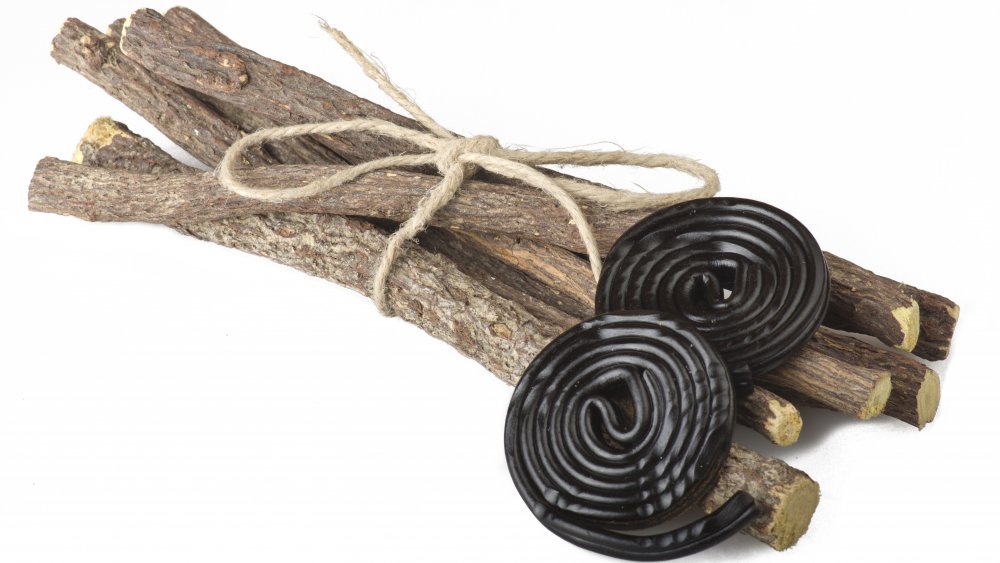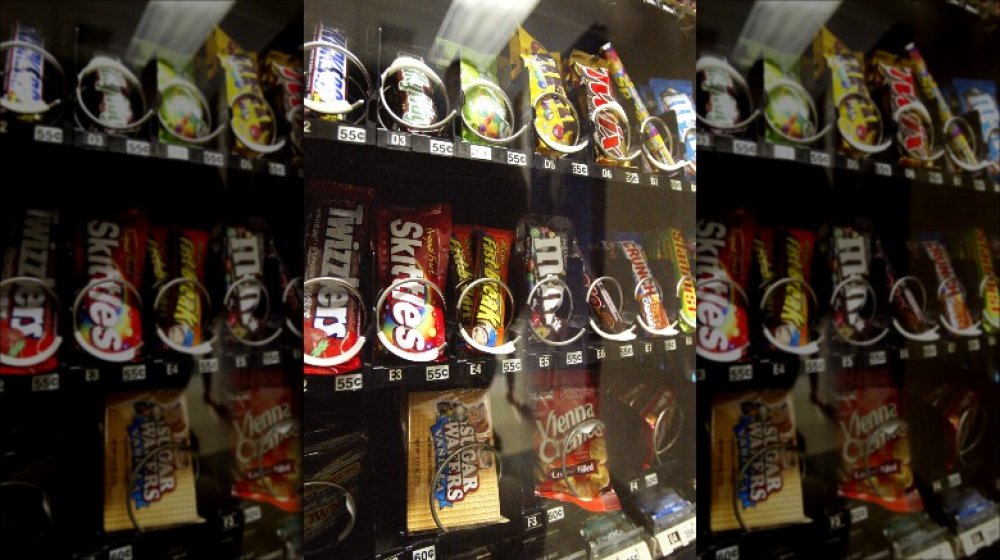The Terrifying Effect Too Much Black Licorice Could Have On Your Health
Doctors at a Massachusetts hospital came across a very rare case last year: a man who died from eating too much black licorice (via the New York Post). The case was detailed recently in the New England Journal of Medicine. The 54-year-old was rushed to Massachusetts General Hospital after having a heart attack in a fast-food restaurant. EMTs were able to resuscitate the man, but he never fully recovered. The man died 32 hours later after kidney failure. Doctors also determined that the man had little chance of recovering his full brain function. In his final hours, his doctors were able to figure out what happened: He had eaten a toxic amount of black licorice over the previous few weeks.
The chemical that gives black licorice its peculiar sweet taste is called glycyrrhizin. Too much of this particular chemical can increase blood pressure and reduce potassium levels, which can cause heart arrhythmias that in turn may lead to heart attacks. The sweet component in black licorice can also cause kidney failure (via National Institutes of Health).
Adults with heart problems are warned to go easy on the black licorice
Black licorice is OK every once in a while, in small quantities. But adults should be careful, especially those with a history of heart problems or high blood pressure (via Good Morning America). People over 40 who eat just two ounces of black licorice every day for two weeks can develop an irregular heartbeat that requires hospitalization, according to the FDA. Because of the real risk of consuming glycyrrhizin, the FDA sets limits on how much of the compound can be found in all food types, including no more than 3.1 percent in soft candies. A spokesman for Hershey, which makes Twizzlers, told the Associated Press that all of its products are safe and comply with FDA regulations (via the New York Post).
The man who died at Massachusetts General didn't have a history of heart problems, but he had a notoriously unhealthy diet that included a lot of candy. The man's family told doctors he ate one or two large packages of soft candy every day. Three weeks before his death, the man had switched from fruit-flavored candy to licorice.

